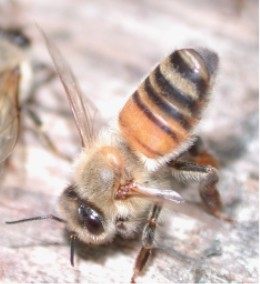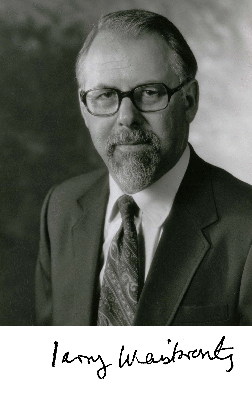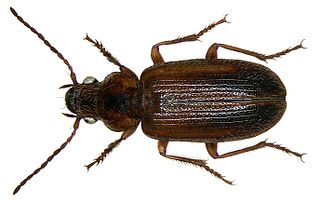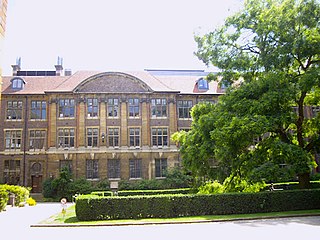
A pheromone is a secreted or excreted chemical factor that triggers a social response in members of the same species. Pheromones are chemicals capable of acting like hormones outside the body of the secreting individual, to affect the behavior of the receiving individuals. There are alarm pheromones, food trail pheromones, sex pheromones, and many others that affect behavior or physiology. Pheromones are used by many organisms, from basic unicellular prokaryotes to complex multicellular eukaryotes. Their use among insects has been particularly well documented. In addition, some vertebrates, plants and ciliates communicate by using pheromones. The ecological functions and evolution of pheromones are a major topic of research in the field of chemical ecology.

Kellogg College is a graduate-only constituent college of the University of Oxford in England. Founded in 1990 as Rewley House, Kellogg is the university's 36th college and the largest by number of students both full and part-time. Named for the Kellogg Foundation, as benefactor, the college hosts research centres including the Institute of Population Ageing and the Centre for Creative Writing. It is closely identified with lifelong learning at Oxford.
Professor Geoffrey Alan Parker FRS is an emeritus professor of biology at the University of Liverpool and the 2008 recipient of the Darwin Medal. Parker has been called “the professional’s professional”.
The "gay bomb" refers to a non-lethal psychochemical weapon concept that was speculated upon by a research laboratory within the United States Air Force. This unconventional idea involved the dispersion of sex pheromones over enemy forces, with the intent of generating mutual sexual attraction among them causing mass confusion and panic on the within their platoons.

Kenneth George "Ken" Binmore, is an English mathematician, economist, and game theorist, a Professor Emeritus of Economics at University College London (UCL) and a Visiting Emeritus Professor of Economics at the University of Bristol. As a founder of modern economic theory of bargaining, he made important contributions to the foundations of game theory, experimental economics, evolutionary game theory and analytical philosophy. He took up economics after holding the Chair of Mathematics at the London School of Economics. The switch has put him at the forefront of developments in game theory. His other interests include political and moral philosophy, decision theory, and statistics. He has written over 100 scholarly papers and 14 books.

William Homan Thorpe FRS was Professor of Animal Ethology at the University of Cambridge, and a significant British zoologist, ethologist and ornithologist. Together with Nikolaas Tinbergen, Patrick Bateson and Robert Hinde, Thorpe contributed to the growth and acceptance of behavioural biology in Great Britain.

Lawrence Weiskrantz was a British neuropsychologist. Weiskrantz is credited with discovering the phenomenon of blindsight, and with establishing the role of the amygdala in emotional learning and emotional behavior. Blindsight is when a person with a brain injury causing blindness can nevertheless detect, point accurately at, and discriminate visually presented objects.
Robert Aubrey Hinde was a British zoologist, ethologist and psychologist. He served as the Emeritus Royal Society Research Professor of Zoology at the University of Cambridge. Hinde is best known for his ethological contributions to the fields of animal behaviour and developmental psychology.

Sociality is the degree to which individuals in an animal population tend to associate in social groups (gregariousness) and form cooperative societies.
Martha Kent McClintock is an American psychologist best known for her research on human pheromones and her theory of menstrual synchrony.
Barry John Everitt, is a British neuroscientist and academic. He was Master of Downing College, Cambridge (2003–2013), and Professor of Behavioural Neuroscience at the University of Cambridge (1997–2013). He is now emeritus professor and Director of Research. From 2013 to 2022, he was provost of the Gates Cambridge Trust at Cambridge University.

Michael Francis Land FRS was a British neurobiologist. He was a professor of neurobiology in the vision laboratory at the Sussex Centre for Neuroscience, University of Sussex, England.
Timothy Hugh Clutton-Brock is a British zoologist known for his comparative studies of the behavioural ecology of mammals, particularly red deer and meerkats.

Gilean Alistair Tristram McVean is a professor of statistical genetics at the University of Oxford, fellow of Linacre College, Oxford and co-founder and director of Genomics plc. He also co-chaired the 1000 Genomes Project analysis group.

Marc Bekoff is an American biologist, ethologist, behavioural ecologist and writer. He was a professor of Ecology and Evolutionary Biology at the University of Colorado Boulder for 32 years. He cofounded the Jane Goodall Institute of Ethologists for the Ethical Treatment of Animals, and he is Professor Emeritus of Ecology and Evolutionary Biology at the University of Colorado Boulder.

Daniel Simon Mills, FRCVS is an English veterinarian and biologist and the UK's first Professor of Veterinary Behavioural Medicine based at the University of Lincoln, United Kingdom. He attended St Edmund's College, Ware before studying at the University of Bristol where he received his BVSc degree and completed his Ph.D. degree in animal behaviour from De Montfort University.

Dicheirotrichus gustavi is a ground beetle which emerges from cracks or holes to feed on tidal salt marshes after dusk. Despite living in a coastal environment, it has no cycle of behaviour linked to the tides, simply scurrying for dry land when caught by the approaching sea. It will eat the larvae of another intertidal beetle, Bledius spectabilis, if they are left unprotected by the adult.

Steven J. Cooke is a Canadian biologist specializing in ecology and conservation physiology of fish. He is best known for his integrative work on fish physiology, behaviour, ecology, and human-dimensions to understand and solve complex environmental problems. He currently is a Canada Research Professor in Environmental Science and Biology at Carleton University and the Editor-in-Chief of the scientific journal Conservation Physiology.

Ratan Lal Brahmachary (1932 - 13 February 2018) was a distinguished biochemist and a pioneer of tiger pheromone studies in India. He was widely known for his research in pheromones, although his academic background based on Physics, specifically on astrophysics under guidance of S.N. Bose. Brahmachary made significant contributions in tiger behavioral studies researching the animal for over 50 years. He studied many species of wildlife, notably big cats and undertook research trips to his favourite continent Africa fourteen times. Brahmachary studied ethology in the Amazon basin in South America and Borneo, Indonesia with an ardent admirer of entomologist Gopal Chandra Bhattacharya.












